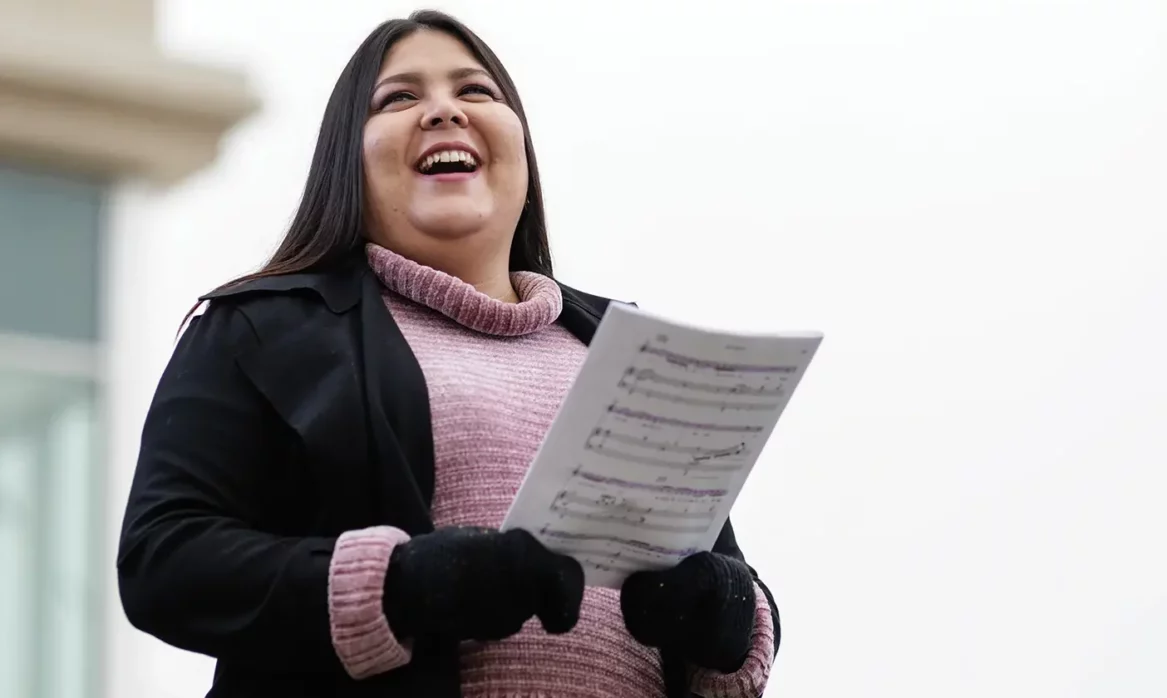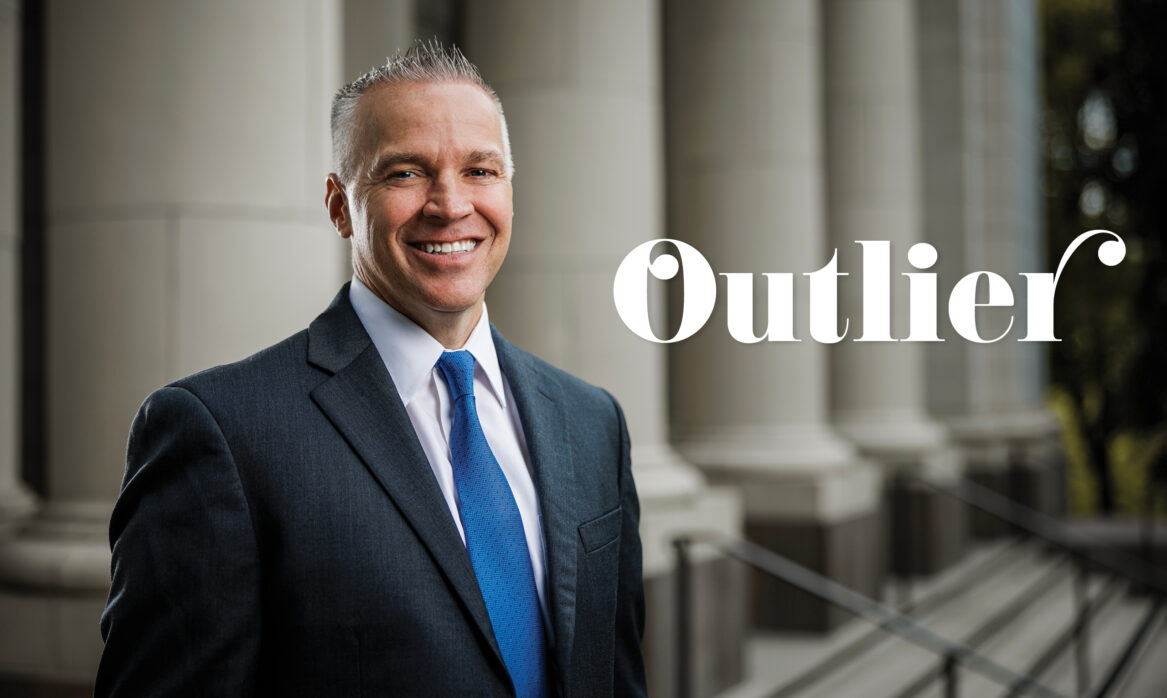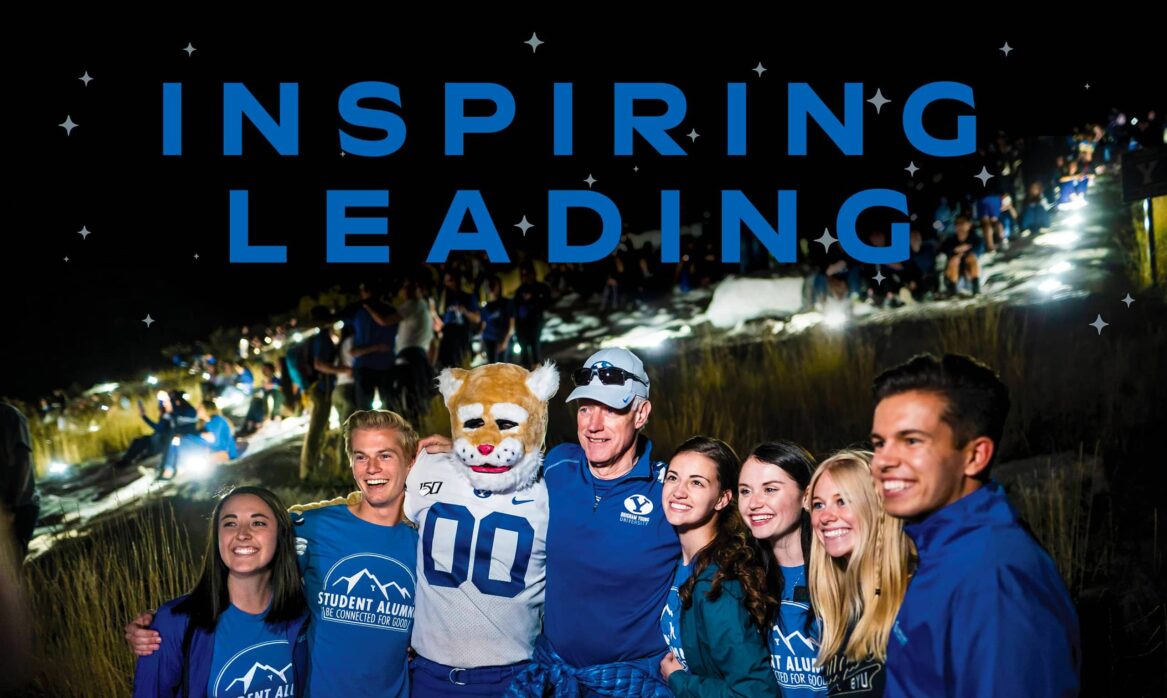The Steep Climb
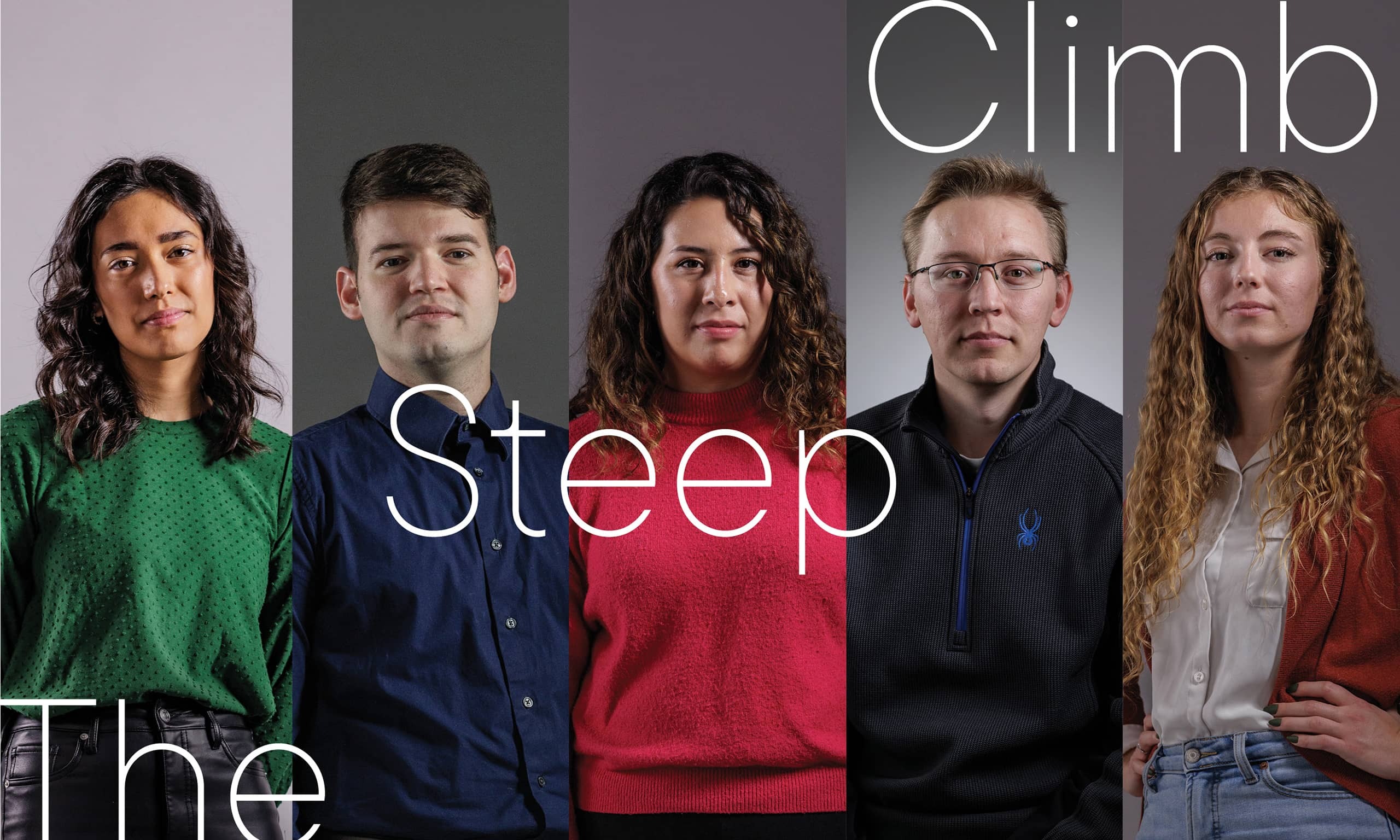
The Steep Climb
First-generation college students forge a path at BYU.
By Andrew T. Bay (BA ’91, MA ’94) in the Winter 2024 issue
Photography by Bradley Slade (BFA ’94)
By the end of his first week as a new BYU student, the freshman felt dizzy and disoriented, more like a number than a name among the thousands of students walking the quads around him. The son of a single parent without college experience, he felt unsure of this obscure and unknown path. He nearly packed his bags and headed home.
Fortunately for C. Shane Reese (BS ’94, MS ’95)—and for BYU—the future university president didn’t call it quits. With a little mentoring from fellow future president Kevin J Worthen (BA ’79, JD ’82), Reese stuck it out and eventually found his way to a degree in statistics and a career in academia.
But for many first-generation students—who make up 30 percent of all US college students today and 10–12 percent at BYU— the path proves too challenging. Nationally, only about a quarter of first-gen students graduate within six years. And that’s no surprise. Such students typically carry a heavier load than their peers. They often lack family support, guidance, and resources, requiring them to work harder and longer. They may struggle to fill out financial forms or register for classes or know how to find help. They may lack self-confidence or feel conflicted about leaving their family in challenging circumstances or carry other emotional burdens.
BYU is working to buck the national trends, offering new first-gen students a trail map for the trek ahead and providing guidance along the way (see “How BYU’s Helping: Bridges and Foundations,” below). Here meet five recent or soon-to-be BYU grads who, through faith, perseverance, and grit, have pioneered a path to a college degree.
Jasmine Mode
“My dad was scrappy, and so am I,” says Jasmine Limbong (BS ’23). When she didn’t make the high school cheer team in her hometown of Kuna, Idaho, she told the football coach his team needed her help getting organized. He agreed and made her director of football, where she gathered player stats, led fundraising, updated the website, and coordinated booster efforts.
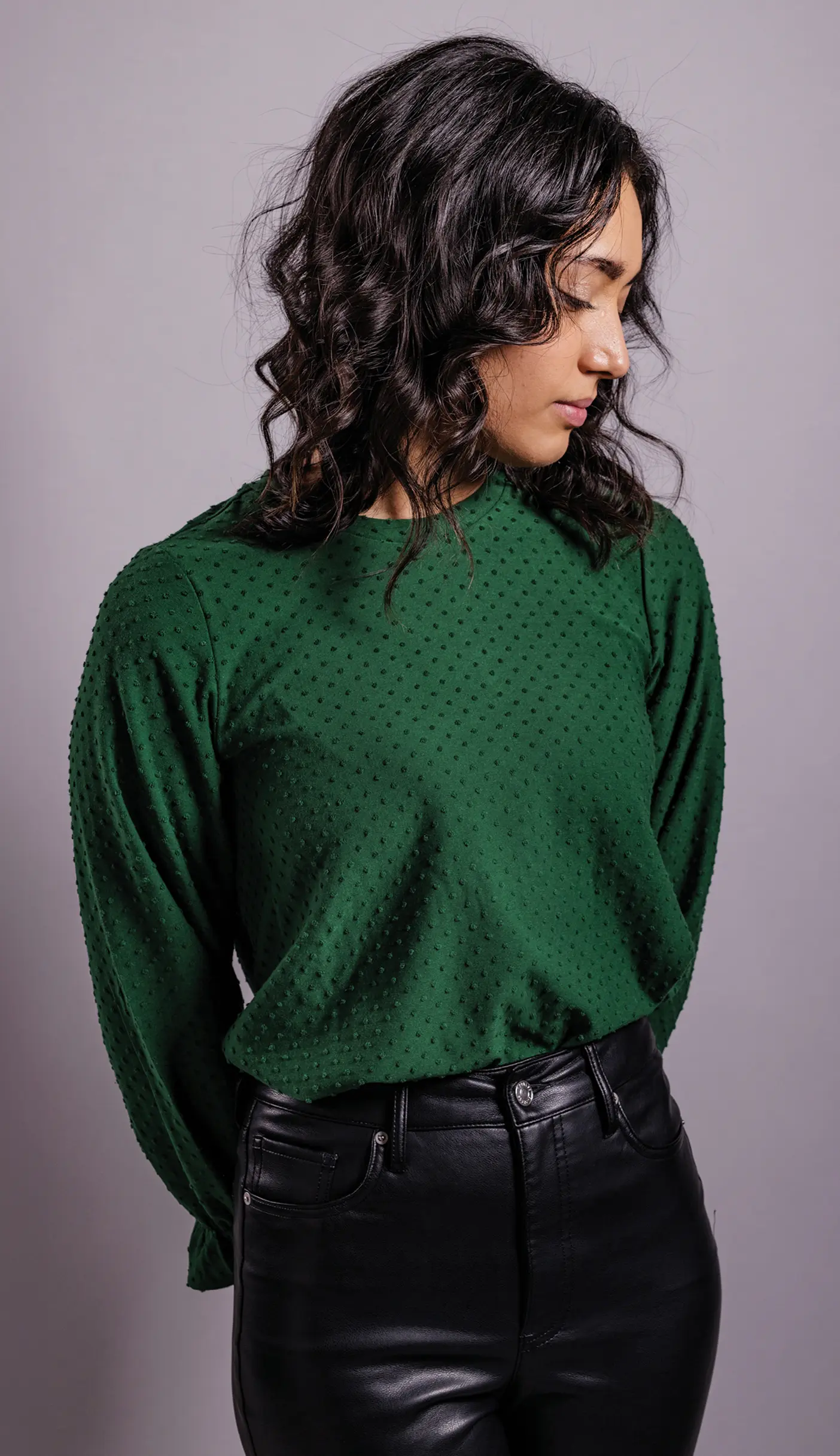
Limbong inherited her scrappy nature from her dad, who had emigrated to the United States from Indonesia in his 20s. “I always had to figure things out on my own—I call that ‘Jasmine mode’—because I was being raised by an immigrant who was trying to figure things out on his own,” she says. Both her parents had started college but dropped out after a year. Her dad had an industrial pressure washing business and other side hustles.
The year Limbong turned 9 was a challenging one. Her parents divorced, and she suffered a serious head injury doing flips off a bar, which may have caused her to become epileptic. Doctors also discovered a benign tumor that affected her brain’s wiring. Ever ambitious, Limbong remained undeterred from participating in sports and learning.
In high school she found inspiration in her student-government and English teachers. “I loved how they looked at the world,” she says. “It was such a wide view! I thought, ‘If that is what you get from college, I want to go.’”
As she filled out applications and prepared to graduate, things got tougher. A week before prom and three weeks before graduation, her dad died. “I’ll never forget those days,” Limbong says. “It was so hard.”
“Others were lining
Jasmine Limbong
up internships and had
four-year plans. I was like,
‘What?’”
Following high school Limbong worked before leaving to serve a Spanish-speaking mission to Wisconsin. She’d planned to attend Utah State following her mission, but her mission trainer suggested she join her at BYU. Together, they worked on her application on preparation days.
“BYU was tough,” says Limbong. High school had been easy for her, and although she had a good GPA, she wasn’t a good test taker. Plus, spending time in the hospital after having seizures and figuring out medications complicated her experience. “I’d lose some of my memory with each seizure and have to catch up again,” she says. “And the stress of college and lack of sleep triggered more seizures.”
Despite these challenges, Limbong threw herself into college life with irrepressible zeal, serving as the BYU Student Association vice president of clubs and working with BYU Athletics, where she covered women’s volleyball and men’s tennis while pursuing a degree in marketing.
But she came to realize that she knew little about how college actually worked. “Others were lining up internships and had four-year plans. I was like, ‘What?’” Only near graduation did she discover how many resources BYU had held for her. Her fierce self-reliance had worked against her.
Despite the struggles, Limbong was anchored by BYU’s environment of faith and her reliance on prayer. “It’s made me who I am,” she says. After graduating last summer, she now works as a digital community manager for the NCAA.
Limbong’s time at BYU has inspired her to make a difference— in the world and for her future family. “Wanting to serve your community is an unusual outcome for most grads, and that’s why BYU is different,” she says. “Although being a first-generation student was hard, I’m grateful I was. Now my kids won’t have to be first-gen students, and I get to help them.”
“Am I This Much?”
When Matheus Henrique Araújo de Medeiros (’24) turned 16, he received an unusual patriarchal blessing. It was unusual in its focus, but also unusually prophetic. “The blessing was all about my mission and how my future would depend on my mission,” says Medeiros. “It was mission, first paragraph, mission, second paragraph, mission, conclusion. That and the importance of good people in my life.”
“Sometimes I would look at myself in the mirror and ask, . . . ‘Am I capable of doing this?’”
Matheus Medeiros
Today Medeiros can see clearly how those words have unfolded in his life. In May he will begin a job at Goldman Sachs, and after a year there, he plans to begin graduate studies at MIT. It’s an improbable path for a country kid from Brazil whose dad barely finished elementary school and whose mom never made it past high school. But not improbable if you know Medeiros and his trust in God.
Medeiros was raised in Caicó, a town in Brazil’s interior. His family was poor and struggled with employment and his father’s alcohol addiction, but his parents saw that he was an exceptional student and wanted him to go to college.
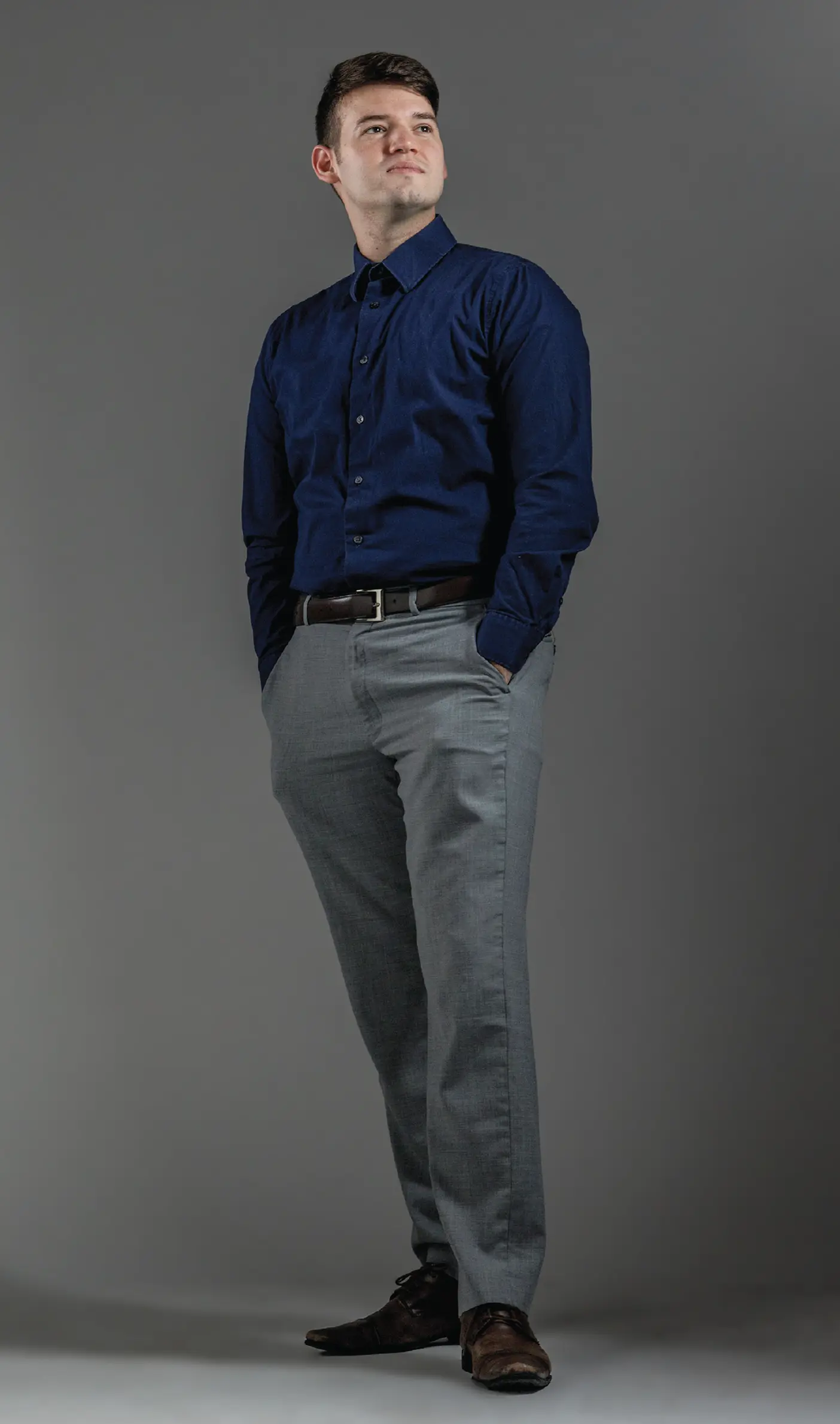
As a missionary Medeiros served in Ribeirão Preto, where his mission president encouraged him and the other Brazilian missionaries to learn English. While serving, his close mission friend Nathan Guzman talked up BYU and encouraged Medeiros to explore it. But Medeiros knew “it was financially impossible.”
Following his mission Medeiros found a job as a financial assistant in Natal, his state capital. He had no real qualifications, but the woman hiring felt strongly he was right for the job. His sister, also in Natal, encouraged him to begin his education with BYU–Pathway. He soon became an English teacher for children at a bilingual school. He also met Júlia, then a missionary, whom he would later marry.
As he gained education and experience, another door opened. Nathan Guzman reached out from the United States with an offer from his family—they wanted to sponsor Medeiros to attend the BYU English Language Center in Provo. There, he perfected his English and passed the TOEFL before spending a year and a half at BYU–Idaho on scholarship. Always interested in math and politics, he chose to study economics.
The Guzmans encouraged him to transfer to BYU. It wasn’t an easy path—with COVID, visa problems, Júlia’s thyroid cancer, and other challenges—but his marriage, unexpected scholarships, remote-work opportunities, and an internship at Goldman Sachs answered prayers.
Medeiros attributes it all to the promises of his patriarchal blessing tied to his missionary service. “There’s a long series of experiences and relationships, too numerous to list, that all tie back to my mission,” says Medeiros. “I’m grateful that so many people believe in me. Sometimes I would look at myself in the mirror and ask, ‘Am I this much? Am I capable of doing this?’ And Nathan Guzman and his family would always say, ‘You are. We know you are.’”
“What Can I Learn?”
“Just fill out your FAFSA,” the high school guidance counselor repeated. Sitting across from her in the small office, 17-year-old senior Nadia Gisselle Terron Ayala (BA ’22) explained again what DACA (Deferred Action Childhood Arrival) meant—because she and her family were undocumented, she didn’t qualify for federal student aid.
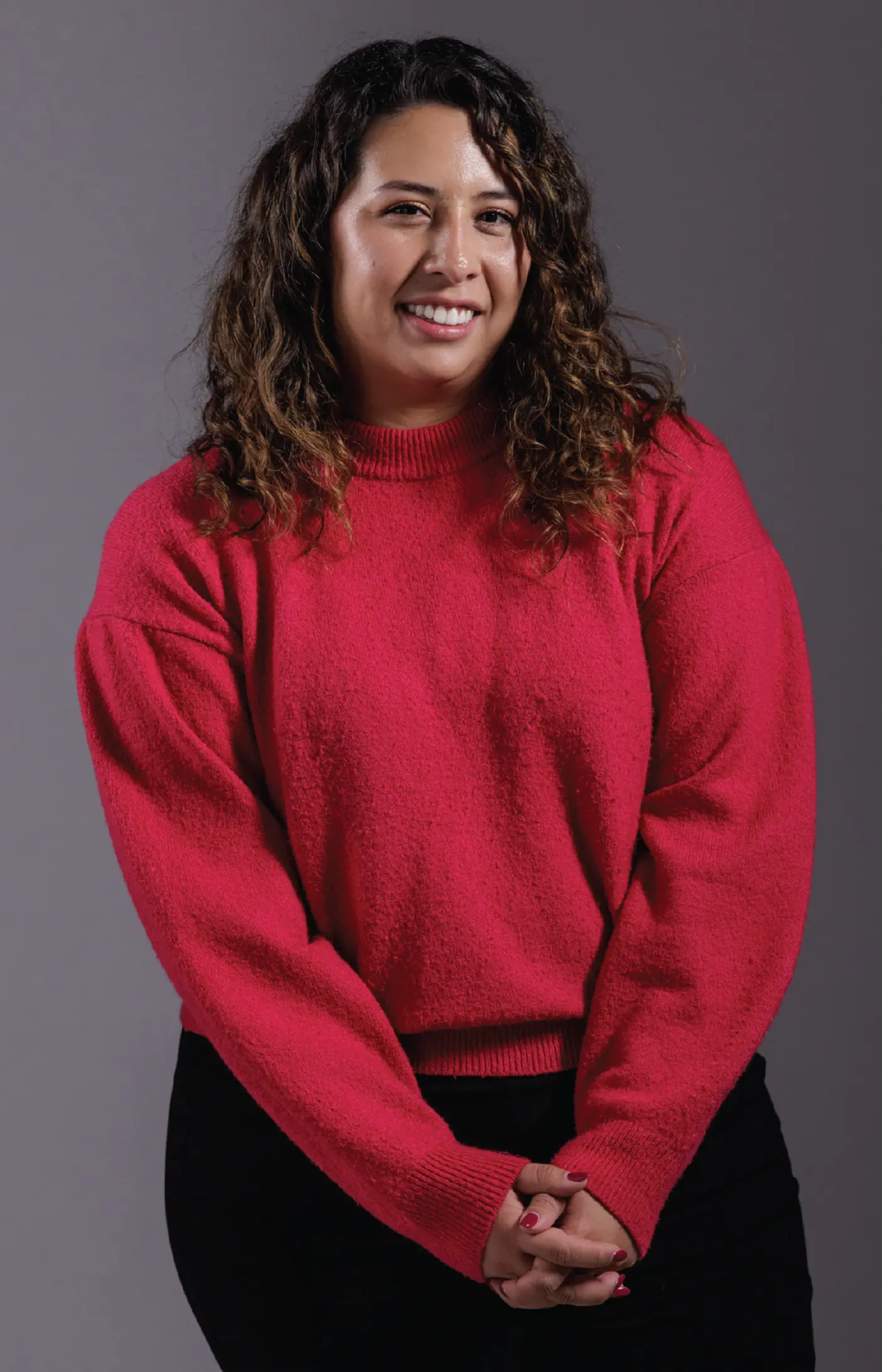
The counselor gave her a blank look. She couldn’t help.
Terron was there because of her parents’ mantra: “Get educated so you don’t have to work as hard as we do.”
But they couldn’t provide much higher-education guidance, either. Neither had gone to college. Terron’s parents had migrated to Florida from Mexico City when she was a baby. Her dad does pavements, and her mom raised the kids while selling Avon and cleaning houses on the side.
Stress about their immigration status tore at the family fabric. “Are we going to stay here?” was a constant question. Terron had been told never to talk about it, so she had to manage her feelings and worry alone. She coped by applying herself in school.
“My biggest challenge in high school was not my AP classes, although they were hard. It was applying to college,” says Terron. After her fruitless attempt to work with her school’s college counselor, she tried to do it on her own. “I remember calling BYU millions of times,” she says. Because she wasn’t a resident or citizen, she had to apply as an international student, even though she grew up here. She found assistance from a bilingual ward member, who helped her fill out the applications and reviewed her essays.
“When I got into BYU I cried,” says Terron. “I thought, ‘Wow, I’m smart enough to get in to college!’” Far away as it was and as big of a financial worry as it would be for her family, Terron knew she wanted to attend. Despite feelings of guilt, she reminded herself, “This is what [my parents] wanted.”
“My biggest challenge in high school was not my AP classes, although they were hard. It was applying to college.”
Nadia Terron
The first two years challenged Terron. She wasn’t sure where to get support and didn’t know where she fit in. Having grown up in the United States, she felt the international office was oriented to others, but as an international student she felt awkward going to the multicultural office for help. Her freshman roommate, also a minority as a Polynesian, helped her integrate when she wondered if BYU really was for her.
After returning to BYU following a mission to California, Terron settled in. She found faculty support from sociology professor Jane L. Lopez and others. This help proved crucial—Terron’s family in Florida was struggling, and she felt stretched thin trying to balance her schoolwork and providing emotional support. Suddenly, college became her stable place, the one thing that she had control over.
Amid all of this she managed to get in to BYU’s top-ranked advertising program. Graduating in 2022, Terron now works full-time in BYU’s Student Connection and Leadership Center.
Through failures, setbacks, and the ongoing stress of her uncertain legal status, Terron says she learned to trust in God during her college years. Failures, she determined, were just another chance to learn and grow. “‘What can I learn?’ became my focus, not pressure to get good grades,” she says. “When I took that pressure off myself, I enjoyed learning again.”
Figuring It Out
Independence. It was a key virtue Cooper R. Lush’s (BS ’23) parents instilled in him and his five brothers from an early age. “My parents taught us growing up that what mattered was working and earning for yourself,” he says. And he did, first by saving up to pay for his mission to Sinaloa, Mexico. When it came time to consider college, they counseled, “Go to college if you want. But you’re paying for it, so you figure that out.”
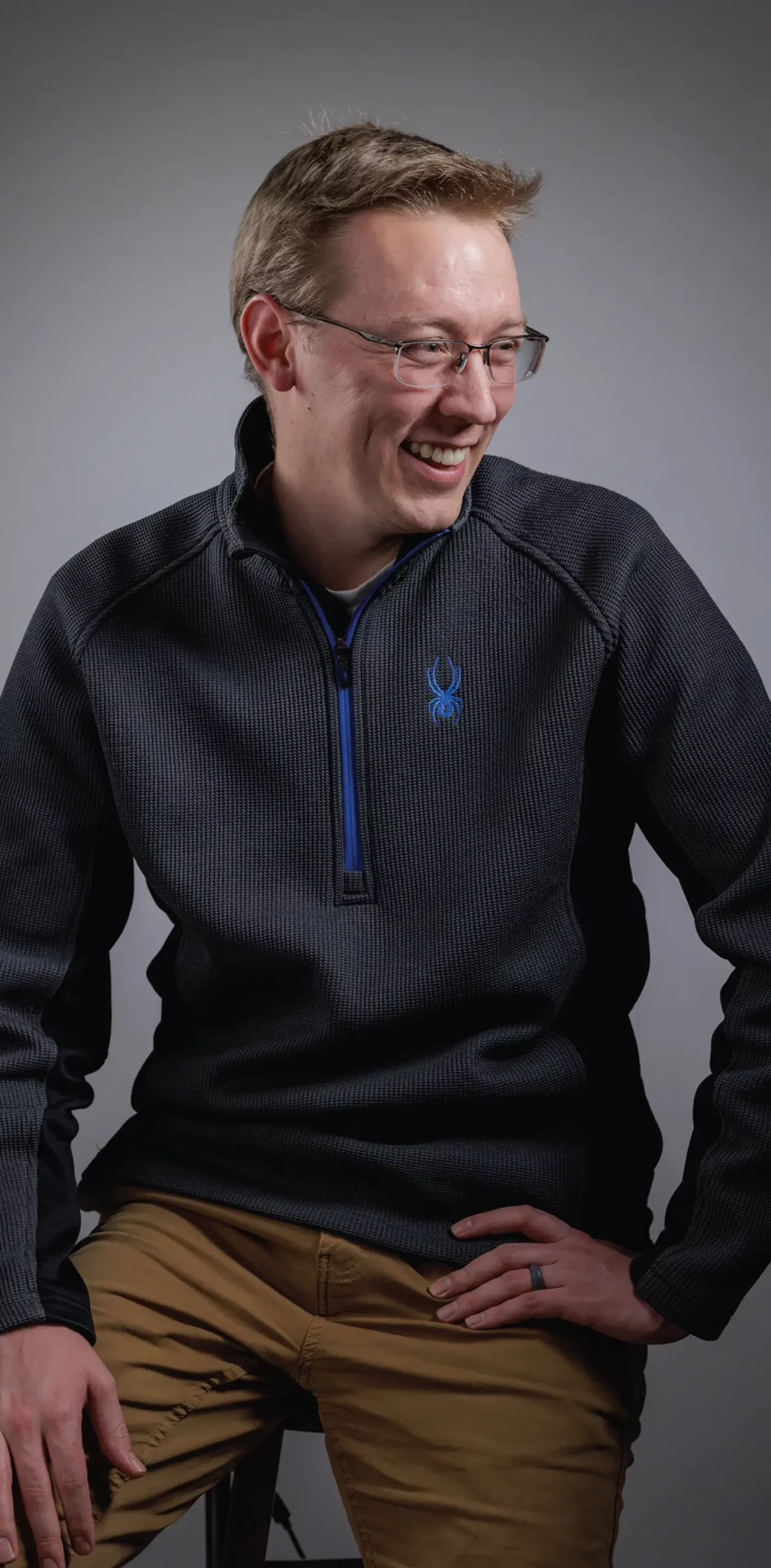
After working a phone sales job that he didn’t enjoy, Lush decided to try BYU. A community-college teacher in his ward helped him with his essays, and he got in.
Getting settled in at BYU proved difficult for Lush, in part because he didn’t know what to expect. “I didn’t really have anyone here to turn to,” he recalls. “I thought it would be like high school, but with different classes.”
Difficult as classes were, the social aspect was hardest, Lush says. “I moved into an apartment not knowing anybody. Starting from nothing was tough.” And then there was the need to work. “I was working almost full-time as a bus driver and helping cater weddings on the weekend, just so I could sustain myself.” Those long hours made it hard to develop friendships and to keep up in school as a business-management major.
“I could have had all A’s, too, if I hadn’t been working 30 to 40 hours a week while taking 15 credit hours,” Lush says wistfully.
Learning to get help was a process. “I went to peers for help first,” Lush says. “Then, as I felt more comfortable, I would go to professors, especially my last two years.” Eventually he became president of BYU’s First-Generation Student Club and of the Marriott Inclusion in Business Society. That’s where he found belonging—and some of his closest friends.
“I’ve gained so much
Cooper Lush
because of my struggles.”
Lush came to love the Sabbath— a time to rest, nurture friendships, and recharge. “My ward was great. My bishops were always kind and willing to share their time and help me.” Lush team-taught Sunday School—and eventually married his coteacher, Nicole Adams Lush (BS ’22).
Looking back, Lush can see how the independence his parents ingrained in him helped him become a real learner and gave him confidence that he could make things happen. “When I was applying to jobs, I thought, ‘I can do this; I can learn this.’”
After Cooper graduated from BYU, the Lushs moved to Walnut Creek, California. He now commutes to San Francisco, where he works as a senior analyst for Mercer Health and Benefits.
Although his journey has been hard, Lush says the toil has been worth it. “I’ve gained so much because of my struggles.”
Powering Through
For Larissa Beatty (’24), getting up each morning was rough. Getting through each day was rougher still. As a new student at Southern Utah University, she’d wake up before sunrise, drive from her family home in nearby Enoch to campus, attend her classes (she carried 19 credits) and do homework, head to work at Papa Murphy’s, travel home to make dinner for her family, return to campus for more homework and to craft articles for her SUU newswriting job, and finally return home long after dark.
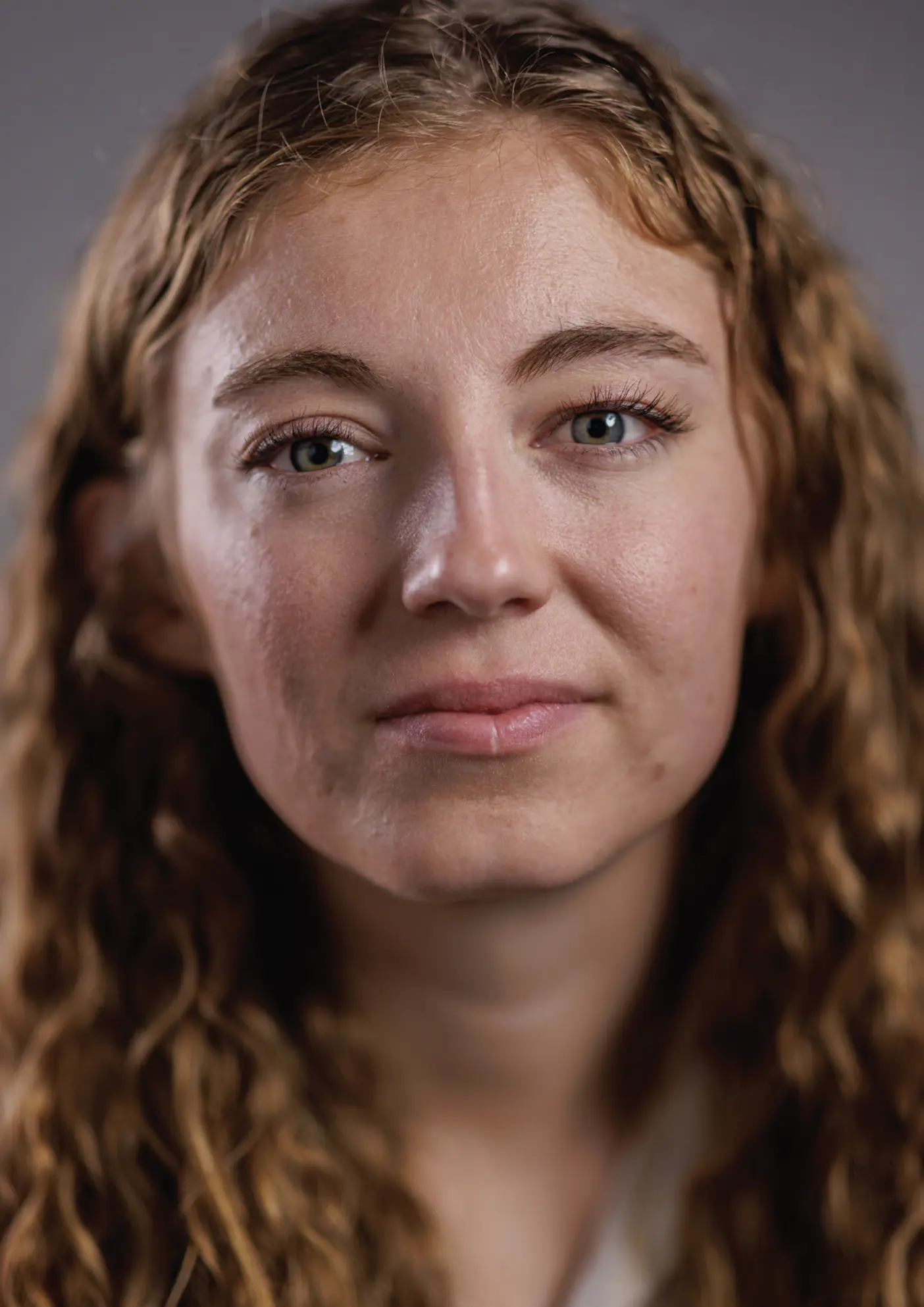
She didn’t know what was or wasn’t “normal” for a college student. She simply did what she thought had to be done, even as she faced complete exhaustion.
After all, “normal” had been turned on its head when she was 6 and her father suffered brain trauma in a car accident, leaving him with significant physical struggles and unable to work. Beatty’s mom worked hard to support the family without a college degree, but there was little income.
As the oldest of four kids, Beatty “became the mom,” taking care of the home, her siblings, and her father while her mom was at work. When it came time for college, she chose SUU so she could remain at home and help her family.
High school had been hard for Beatty, and not just because she was supplementing the family income with her part-time job. She’d put a lot of pressure on herself to get good grades so she could attend college, even taking AP classes and concurrent enrollment, but she didn’t really understand how that all worked and didn’t ask.
“I’m chronically bad at asking for help,” she says. “I didn’t want to be a burden to my parents. I felt like any issue I had was small compared to putting food on the table.”
“I felt like an imposter. Other students seemed to instinctively know things I didn’t. I felt like I had to work harder than others but didn’t know why.”
Larissa Beatty
Beatty’s high school English teachers built up her confidence that she could pass college English. With encouragement from them, her bishop, and family friends, she arrived at SUU “confident and determined,” she says, “mostly because I had no idea what finishing college looked like. I had this mentality that . . . I’m just going to power through it.”
When her mother got a better job, Beatty decided to serve a mission and was called to Lubbock, Texas. “Being away from my family really helped me go through the identity formation that all kids go through, just later,” she says. Beatty completed another year at SUU until a prompting urged her to go to BYU. As difficult as it was to leave her family with her dad’s condition worsening, Beatty needed space and independence to succeed in school.
“After so many years as a caretaker I almost felt guilty for how nice it was to live with roommates who were self-sufficient like I was,” says Beatty. “But as a student I felt like an imposter. Other students seemed to instinctively know things I didn’t. I felt like I had to work harder than others but didn’t know why. But I’ve learned and gotten better at it.”
Following the example of her high school teachers, Beatty is now an English-teaching major. “The teachers who embraced my home circumstances and championed me and told me I was a capable student in spite of everything, they changed everything for me,” she says. “I want to do the same for others.”
Her father, who died in 2022, “was proud of me and was my cheerleader to the finish,” says Beatty. “I’m excited to graduate for him and my mom and family.”
Going away to college has changed Beatty’s life and her relationships with her family, sometimes making it harder to connect. “But my mom is really proud,” Beatty says. “When I come home, she says, ‘Oh my gosh, my college girl’s home.’”
How BYU’s Helping: Bridges & Foundations
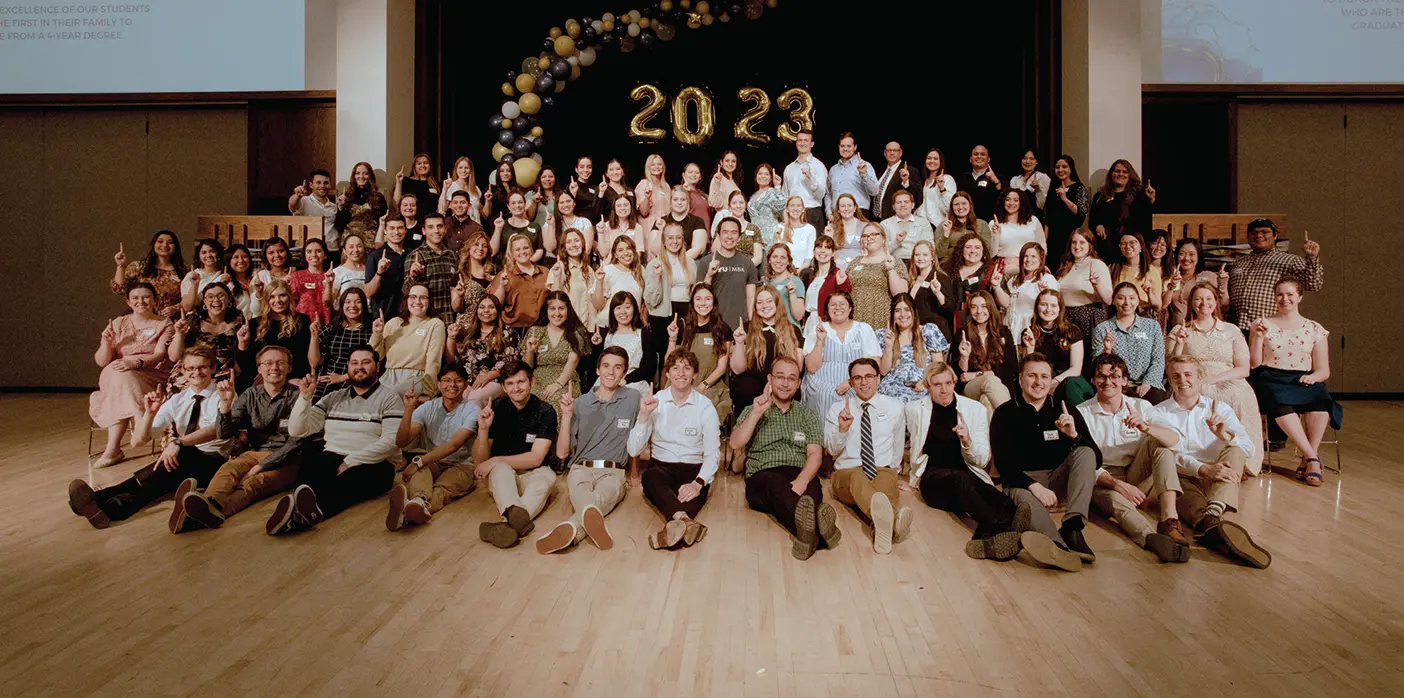
“The very thing that got them here [self-reliance] is the thing that makes it hard for them to stay here: they’re the least likely to ask for help.”
—Benjamin Gibbs
“Every institution has an obligation to support all of its students, but we have a covenant responsibility to ensure that there are no poor among us,” says Bryce D. Bunting (BS ’06, MS ’11, PhD ’14), director of BYU’s Office of First-Year Experience. He and other BYU administrators seek out among the thousands of new students each year those who may come to BYU poor financially, in experience, or in the relationships that could help them succeed. “We’re in a position to help students in powerful ways,” he says.
Even before first-generation students are accepted into BYU, the university offers first-generation clinics and application help over Zoom to guide them through the process. “We want to narrow the gap for the things that could stand in their way,” says Rebecca I. Pike (BS ’10, MS ’16), associate director of recruiting and outreach.
After observing that fewer accepted first-gen students end up enrolling, BYU introduced the Summer Bridge program in 2023 to help first-gens and other new students who might benefit. The collaborative effort among different BYU areas provides a scholarship for students to get an early taste of college before the fall semester sets in. “The program helps these bright kids make friends in a cohort, get the hang of college life, and work with a mentor—so important because they don’t have the same networks as other students,” says Pike.
Bunting says it’s about helping them find “a home at BYU” and teaching them and other new students how to combine effort, university resources, and good strategies for success. That matters because, says sociology professor Benjamin G. Gibbs (BS ’03, MS ’05), “the very thing that got them here [self-reliance] is the thing that makes it hard for them to stay here: they’re the least likely to ask for help.”
Bunting notes that “before a first-gen student even sets foot on campus, they might start to doubt whether they have what it takes to be successful here because they can’t figure out the insurance process or how to get in to on-campus housing or even how to use the university registration system—things that don’t have anything to do with academic competence at all,” says Bunting. “But in the student’s mind, if they struggle with those tasks and there’s no one really to help them, it can signal to them, ‘Well, maybe I don’t have what it takes to be successful here.’”
Within a month of admission, BYU assigns all new students a peer mentor to help them navigate housing, advisement, and financial aid. BYU is working to change the ratio of mentors from 1:60 to about 1:25 by this fall. During New Student Orientation peer mentors and new students share the challenges they have faced in college and high school and explain how they worked through them. “It helps students internalize that challenges are normal and bring growth,” says Bunting.
Another groundbreaking effort is UNIV 101: BYU Foundations for Student Success, piloted in 2023 and going mainstream in 2024. In the new required course, all students will learn about BYU’s mission, strategies to learn and grow, and available university resources—from support offices and labs to TAs and professor office hours. In the small classes—notes Chip Oscarson, associate dean of undergraduate education and director of general education—faculty and peer mentors will “work to understand and help each student—a real boon for new and especially first-generation students who don’t have established networks for guidance.”
Feedback Send comments on this article to magazine@byu.edu.


